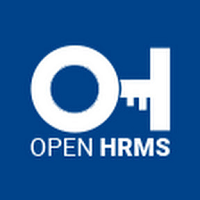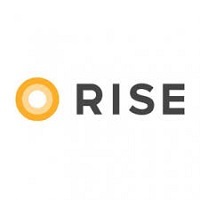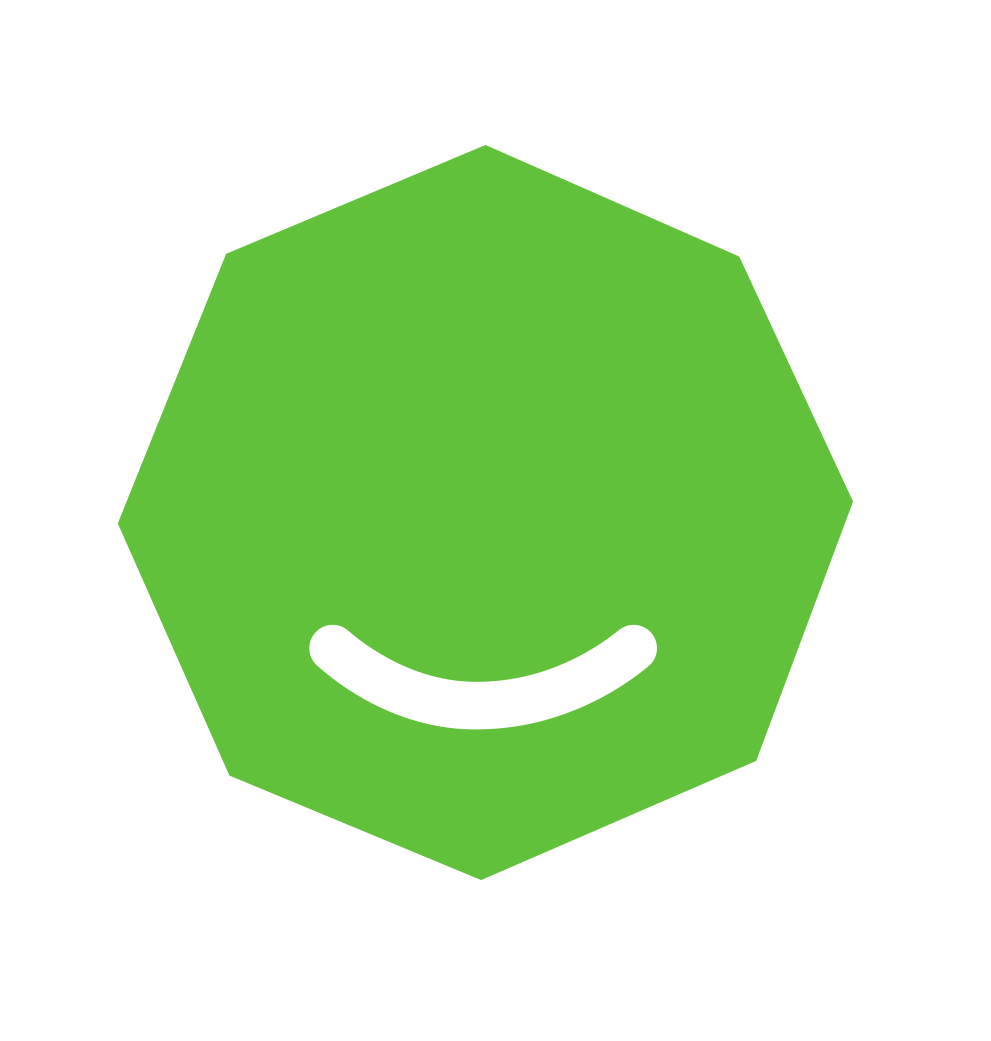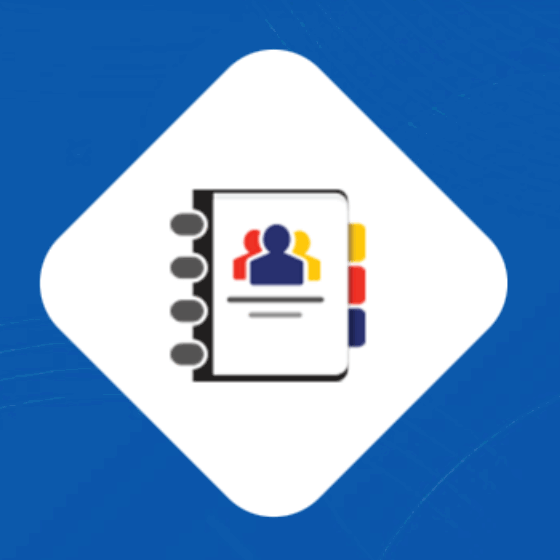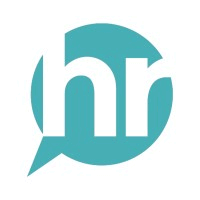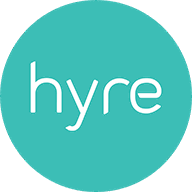Indeed, the majority of contemporary employee database software is made to work on a variety of platforms and devices, including as desktops, laptops, tablets, and smartphones. Employees may now access crucial data and documents at any time and from any location thanks to this. To ensure compatibility with your devices and operating system, it is always advised to verify with the particular software vendor.
List of Best Employee Database Software
Open HRMS is tool that encourages employees to participate and contribute at all levels. It offers valuable insights into performance and makes attendance tracking a breeze. The software is equipped with advanced recruitment features that make findin...Read More Open HRMS
WINHRMPAYROLL is a HR solution for businesses of any size. Our cutting-edge platform delivers comprehensive services to meet all your organizations requirements. With our cloud-based system, we offer a seamless hire to retire solution ideal for small...Read More WINHRMPAYROLL
Rise, payroll management software based in Canada, is designed to streamline your payroll process. With cutting-edge features such as automated tax deductions, minimized data entry, and efficient commission handling, Rise simplifies all aspects of pa...Read More Rise
Happy Job is asoftware that uses gamification to evaluate employee engagement and loyalty. Our unique survey, consisting of 59 thoughtfully designed questions and based on a patented methodology, provides companies with valuable insights into their w...Read More Happy Job
ArcHRM: the advanced HR software that streamlines employee data storage, streamlines onboarding procedures, and tracks time off. Designed with user-friendly automation for both simple and complex HR tasks, ArcHRM minimizes the burden on HR personnel...Read More ArcHRM
Beyond Intranet Employee Directory solution for streamlining access to employee information. With our intuitive software, you can effortlessly navigate and personalize features for quick retrieval of your colleagues name, position, and contact inform...Read More Beyond Intranet Employee Directory
OneDirectory is a employee directory and org chart solution built specifically for businesses leveraging Microsoft 365 and Azure Active Directory. With OneDirectory, your team will have access to a comprehensive people directory and org chart, equipp...Read More OneDirectory
MintHR is a solution designed for small and medium-sized businesses, focused on providing a data-driven employee experience. With our platform, you can streamline HR and IT processes, allowing you to concentrate on your core business. Eliminate the s...Read More MintHR
TalentHR by Epignosis - your comprehensive HRIS solution. Experience a simplified people management process with customized features, advanced analytics, effortless onboarding, and more. Prioritize your teams success without IT expertise. Elevate you...Read More TalentHR
Myhrtoolkit is aonline HR software perfect for small and medium-sized businesses. This budget-friendly solution simplifies human resource management and offers efficient tools for both employers and employees. Accessible on any device, Myhrtoolkit is...Read More Myhrtoolkit
HRMTHREAD, the premier web-based payroll software highly favored by over 5000 satisfied clients. With its advanced features, managing employee database and payroll has never been easier. Its user-friendly interface allows for smooth navigation and si...Read More HRMTHREAD
CollageHR is a HR management solution designed to simplify and streamline HR processes for businesses of all sizes. Stay organized with powerful features and customizable time tracking. Say goodbye to HR difficulties and welcome a seamless and effici...Read More CollageHR
PicnicHR, the ideal solution for teams of any size. Our affordable pricing makes us the top choice for small and medium businesses. We strive to offer a simple and personalized experience, freeing up your time to focus on your employees instead of pa...Read More PicnicHR
Koppr - a dynamic and versatile solution crafted to enhance your business processes and boost efficiency. Utilizing advanced automation and data-driven insights, Koppr empowers teams to focus on strategic goals and optimize performance for growth and...Read More Koppr
Hyre Staff Scheduling Software provides a comprehensive solution for efficiently managing shift-based workforces. Simplify your operations, enhance internal communication, reduce labor costs, and seamlessly track time, attendance, and payroll with ou...Read More Hyre
Learn More About Employee Database Software
- What Is Employee Database Software?
- What Are The Recent Trends In Employee Database Software?
- Benefits Of Using Employee Database Software
- Important Factors To Consider While Purchasing Employee Database Software?
- What Are The Key Features To Look For In Employee Database Software?
- Why Do Businesses Need Employee Database Software?
- How Much Time Is Required To Implement Employee Database Software?
- What Is The Level Of Customization Available In Employee Database Software?
- Which Industries Can Benefit The Most From Employee Database Software?
- Conclusion
What Is Employee Database Software?
Businesses may effectively manage and arrange employee data on a consolidated, digital platform with the help of employee database software, a potent tool. Important employee data, including as personal information, job specifics, performance reviews, and more, may be tracked, stored, and accessed all in one place. Maintaining and updating data is made simpler by this program, which does away with the requirement for conventional paper-based personnel files.
Additionally, it guarantees adherence to industry rules and data protection legislation and removes the possibility of losing crucial records. Employers can save time and effort on manual record-keeping by using personnel database software to search and retrieve information with ease. Additionally, it enables customisable reporting, offering analytics and insights to support workforce planning and decision-making.
Additionally, sophisticated features like employee self-service portals lessen the strain for HR staff by enabling staff members to access their personal data, request time off, and update their information. A few important considerations should be made while looking for employee database software, such as scalability to support business expansion, security features, convenience of use, and compatibility with current systems. Making an informed choice will also be aided by analyzing customer evaluations and asking for demos.
What Are The Recent Trends In Employee Database Software?
In recent years, employee database software has emerged as a vital tool for companies of all kinds. The demand for effective and secure employee data management has increased with the popularity of remote work and flexible work schedules. Because of this, the market for employee database software has grown significantly and is anticipated to do so in the years to come.
Combining machine learning (ML) and artificial intelligence (AI) capabilities is one of the newest developments in personnel database software. More complex data analysis is made possible by these technologies, which also aid in automating tasks like data entry and personnel record updates. In addition to saving HR professionals time, this increases the precision and effectiveness of personnel data management.
The shift to cloud-based employee database software is another trend. This indicates that the software is available online and hosted on a distant server. This makes it perfect for remote work arrangements since it enables easy access to employee data from any location. Furthermore, cloud-based software frequently has backups and updates that happen automatically, protecting data and removing the need for human maintenance.
Businesses now take data security and privacy into account when selecting personnel database software. Software that provides enhanced security features like encryption and access controls has therefore become more popular. This guarantees that private employee data is shielded from breaches or illegal access.
In employee database software, collaboration and communication tools are likewise becoming more and more common. This makes it simpler for employees and HR professionals to communicate about things like changing personal information or obtaining employee information. These characteristics also encourage efficiency and transparency in the handling of personnel data.
In general, increasing automation, data security, and remote accessibility are the main focuses of current trends in employee database software. Having reliable and up-to-date employee database software has become essential as companies continue to adjust to the evolving nature of the workplace. To make sure that the software selected satisfies the present and future requirements of the company, it is crucial to keep these trends in mind when thinking about investing in employee database software.
Benefits Of Using Employee Database Software
A significant tool for efficiently and effectively managing all of your employees' vital information is employee database software. It helps companies save time and money by streamlining their HR procedures. Let's examine some of the primary advantages of utilizing employee database software in more detail:
1. Secure And Centralised Storage: Employee database software offers a single location to keep all employee data and information, including personal information, work history, performance evaluations, pay and benefits, requests for time off, and more. This lowers the possibility of data loss or security breaches by doing away with the need for numerous spreadsheets and physical files.
2. Simple Navigation And Access: Since all of the data is kept in one location by the database software, it is simple to search for and access. This saves time and boosts productivity by making it simpler for HR staff to locate and obtain pertinent information quickly when needed.
3. Increased Productivity And Efficiency: Many HR procedures, like time-off management, performance reviews, and employee onboarding, are automated by employee database software. This streamlines these procedures and does away with the need for handwritten documentation, giving HR professionals more time to work on more crucial projects.
4. Fast Reporting And Analysis: Organizations can create reports and monitor critical metrics, like employee performance, attendance, and turnover, with employee database software. This aids in identifying areas for improvement and offers insightful information for decision-making.
5. Improved Compliance And Legal Compliance: It is legally required to keep personnel records, and noncompliance may result in fines and legal repercussions. Businesses may make sure that all personnel records are correct, current, and in compliance with both federal and state laws by using database software.
6. Cost Savings: Employee database software can assist companies in cutting operating expenses and resources by automating HR procedures and eliminating the need for human paperwork.
Important Factors To Consider While Purchasing Employee Database Software?
In order to make the greatest choice for your company, there are a few important considerations to make when buying employee database software. We include some of the most crucial factors to think about when doing your evaluation process below.
1. Scalability: Your personnel will expand along with your business. Selecting personnel database software that can grow with your company and change with its demands is crucial. Choose software that is easily scalable, whether that means increasing storage capacity or adding more users.
2. User-Friendly Interface: Your employees' ability to utilize and navigate the program will be greatly influenced by its interface. In addition to saving time, a user-friendly interface will reduce the need for intensive training. To guarantee a seamless user experience, think about choosing software with a clear, simple interface.
3. Integration With Other Systems: You probably utilize a number of systems to run your company, and your personnel database is just one of them. The software's compatibility with other tools and systems that you use, like payroll, attendance, or performance management software, is therefore quite important. Your company's workflow will become more simplified and effective as a result.
4. Customization And Flexibility: When it comes to managing employee data, every firm has unique requirements and procedures. Verify that the software you select has the flexibility and customization required to meet your unique needs. Creating unique fields or forms, automating particular processes, or adjusting access levels for various individuals are a few examples of this.
5. Data Security: Since the software contains sensitive employee data, data security must be given top priority. To make sure your data is safe and secure, look for software that has strong security features like encryption, frequent data backups, and user permission restrictions.
6. Customer Support: Having access to trustworthy customer support is crucial in the event of any technical problems or inquiries. Make careful to investigate the vendor's degree of customer assistance while assessing employee database software. Support staff availability, communication channels, and response time assurances are a few examples of this. Investing in staff database software is a long-term decision for your company. You may select software that not only fits your present requirements but also has the capacity to expand and change with your company in the future by keeping these important considerations in mind.
What Are The Key Features To Look For In Employee Database Software?
Because it enables the effective management of personnel data and information, employee database software is an essential tool for companies of all sizes. There are a few essential elements to consider when looking for employee database software to make sure you get the finest option for your company.
1. User-Friendly Interface: A software program's user interface is among its most crucial features. Seek out personnel database software with an easy-to-use interface that is clear and simple. In addition to saving your HR team time and frustration while use the program, this will facilitate the onboarding and system usage of new hires.
2. Detailed Employee Profiles: Managing and storing employee data is the primary function of employee database software. Choose software that lets you make thorough employee profiles with personal data, contact information, work history, certificates, performance reviews, and more. It would be simpler to manage and make wise judgments if you have a comprehensive picture of every employee.
3. Customizable Fields: When it comes to handling personnel data, every company has unique requirements. Verify that the program you select enables you to add new fields and modify existing ones as necessary. This will guarantee that the program can adjust to your company's particular requirements.
4. Employee Self-Service: Giving workers the ability to handle their own data can help your HR department save time and money. Seek out employee database software with a self-service portal where staff members may read company papers and policies, request time off, and update their personal information.
5. Access Controls: Having access controls in place is essential when handling sensitive employee data. Seek for software that lets you restrict access to certain information based on responsibilities and set permissions. This will guarantee that sensitive employee data is only accessible by authorized individuals.
6. Integration With Other Systems: Seek out personnel database software that can interface with other HR systems, such as payroll, attendance, and performance management, in order to expedite procedures and save time. This will remove the need for human entry and lower the possibility of errors by enabling smooth data movement between systems.
7. Reporting And Analytics: Without the ability to evaluate and apply data to make defensible judgments, it is worthless. To track important HR indicators, see patterns, and make data-driven business choices, look for software with extensive reporting and analytics capabilities.
Why Do Businesses Need Employee Database Software?
A strong and necessary tool for companies of all sizes and sectors is employee database software. It is a safe and effective approach to track employee performance, manage employee data, and expedite HR procedures. Having a consolidated employee database is more crucial than ever in the fast-paced commercial environment of today, where data is essential for strategic decision-making. The following are some main justifications for why companies want personnel database software:
1. Streamlined HR Operations: By centralizing employee data and automating repetitive duties like data input, record-keeping, and report generation, employee database software assists HR departments in streamlining their operations. HR workers are able to concentrate on more important activities as a result of the increased efficiency and decreased likelihood of errors.
2. Simple Access To Employee Data: Employers may store and retrieve all employee data, such as personal information, work history, performance evaluations, and training records, in one location by using employee database software. This facilitates managers' and HR experts' ability to swiftly obtain the necessary data and make well-informed decisions.
3. Increased Data Accuracy: Manual record-keeping can result in mistakes and duplicate data, which can be expensive and time-consuming to fix. By offering standardized forms and fields, employment database software removes these mistakes and guarantees accurate and current personnel data.
4. Enhanced Protection: Employee database software provides a high degree of protection, guaranteeing that only authorized staff can access important employee data. It helps businesses adhere to data privacy laws and guards against data breaches.
5. Performance Tracking: Employers can set goals for teams, individuals, or the entire company by using employee database software to monitor employee performance. Top performers, areas for improvement, and training needs can all be determined using the data.
6. Employee Engagement: The success of a firm depends on maintaining motivated and engaged staff. Software for employee databases offers options for goal-setting, feedback, and recognition, all of which increase worker satisfaction and engagement. To sum up, companies that want to promote employee engagement, boost data accuracy, and expedite HR procedures must have employee database software. It is a valuable investment that can save time, reduce costs, and contribute to the overall success of a company.
How Much Time Is Required To Implement Employee Database Software?
Employee database software implementation times can vary based on a number of factors. Implementing the program completely and teaching your team how to use it efficiently can take a few weeks to several months on average. Understanding your unique objectives and requirements is the first step in putting employee database software into practice. This will assist you in selecting the best software to meet the objectives and requirements of your company.
The process of putting the program into use starts as soon as you make your choice. Configuring the software, migrating data, and customizing it to meet the particular requirements of your business are all part of the installation process. The intricacy of your data and the degree of customization required will determine how long these procedures take. Since data migration entails moving all employee data from your old system to the new one, it can be a very time-consuming procedure.
To prevent errors, it is essential to make sure that the data is transferred appropriately. Training your team to use the program effectively is the next stage. This may require some time, particularly if the members of your team are unfamiliar with the software. To guarantee that your staff can efficiently use all of the software's functions, proper training is crucial. Finally, testing and troubleshooting are also part of the implementation process.
To make sure the program is operating properly and that all data has been accurately moved, this step is essential. The size of your company also affects how long the deployment will take. Compared to larger firms with hundreds or thousands of employees, smaller organizations with fewer people could need less time. Depending on the size and complexity of your data, your vendor can provide you an approximate implementation schedule.
What Is The Level Of Customization Available In Employee Database Software?
Numerous customization possibilities are available in employee database software to satisfy the particular requirements of enterprises. The particular program selected and its capabilities determine the degree of customisation that is possible. Nonetheless, the majority of employee database software comes with standard customization tools like the ability to add or remove fields, create unique reports, and modify user rights.
Creating unique templates, workflows, and integrations with other software systems are examples of more complex customization choices. Certain employee database software even offers customizable layout and branding choices to fit a business's style and identity. The kind of personnel data being maintained also affects the degree of personalization.
For instance, payroll software may offer more customization choices for adjusting payment calculations and reporting, but HR software may offer more customization options for handling employee data. Businesses should carefully evaluate their unique customization requirements when weighing their options for personnel database software.
Before making a purchase, make sure to ask about any additional alterations that the merchant may give for an additional cost. All things considered, the degree of flexibility that employee database software offers enables companies to adapt the program to their own data management requirements, making it an invaluable and adaptable tool for any kind of business.
Which Industries Can Benefit The Most From Employee Database Software?
An effective technology that has the potential to completely transform how businesses handle employee data is employee database software. This software's extensive feature set and sophisticated capabilities make it suitable for a wide range of businesses. The industries that stand to gain the most from employee database software will be covered in this buyer's guide.
1. Human Resources (HR): Any organization's HR division handles a lot of employee data, including training records, performance reviews, benefits, and personal information. By centralizing all the data and making it conveniently accessible and editable, employee database software simplifies these procedures. In order to make wise decisions, HR specialists can also create reports and examine data.
2. Healthcare: Providing high-quality patient care in the healthcare sector depends on having accurate and current employee data. Healthcare firms may keep employee credentials, work schedules, certificates, and compliance records in one location with the help of employee database software. This promotes efficiency and better patient outcomes by guaranteeing that the appropriate personnel is always accessible for patient care.
3. Finance: Organizing payroll, taxes, and benefits for a big workforce can be difficult for financial organizations. By automating these procedures, employee database software lowers the possibility of human error and saves finance teams time. Additionally, it guarantees adherence to financial standards and offers real-time tracking of employee spending.
4. Retail: Employees at retail companies come from a variety of backgrounds and hold a range of positions. Store managers can more easily manage their employees by using employee database software, which streamlines the administration of personnel data, shift schedules, and performance reviews. In order to ensure correct payroll processing, this software also makes it simple to track employee attendance and sales commissions.
5. Education: Schools, colleges, and universities have to handle a lot of data about their staff, students, and teachers. Educational institutions can more effectively track employee information, performance, and training records with the use of employee database software. By offering information on wage and benefit costs, it also helps with budget management. To sum up, a variety of sectors benefit from personnel database software. Organizations may increase data quality, streamline HR procedures, and make data-driven decisions thanks to its sophisticated features. Businesses can increase their overall efficiency and productivity by purchasing this software.
Conclusion
To sum up, selecting the best employee database software for your business is an important choice that shouldn't be made hastily. There is no one-size-fits-all option, as is evident after weighing crucial elements including price, features, usability, and support. Before choosing a choice, it's critical to carefully evaluate the budget and unique requirements of your business. Before deciding on a specific piece of software, it is also advised to utilize free samples or demos. This will enable you to test the interface and functionality to make sure they live up to your standards.
Reading reviews and getting input from existing users can also yield insightful information and help with decision-making. Additionally, it's critical to consider the software's scalability. The software should be able to handle the growth in personnel and data as your business expands. This will avoid the need for future system changes or frequent software upgrades. Finally, don't forget to take the software company's level of assistance into account.
Seek out businesses who provide your staff with training materials so they can make the most of the software and quick, attentive customer service. You can select the employee database software that best fits your company's requirements, financial constraints, and objectives by carefully weighing your options and taking the aforementioned aspects into account. We hope that this buyer's guide has helped you make an informed choice by offering insightful information. I appreciate you reading.
Employee Database Software FAQ's
Can Employee Database Software Be Accessed Across Multiple Devices And Platforms?
Is Employee Database Software Future-Proof And Adaptable To Emerging Technologies Like Ai, Blockchain or Iot?
In order to stay up with new technologies like blockchain, artificial intelligence, and the Internet of Things, employee database software is always changing. It is extremely flexible and future-proof due to its ability to integrate with these technologies.
This enables companies to make data-driven decisions, enhance data security, and optimize their HR procedures. personnel database software is still effective and relevant for managing personnel data for peak performance in the dynamic corporate environment thanks to frequent upgrades and improvements.
Is There A Free Trial Offered To Assess Employee Database Software Before Committing?
Yes, a lot of companies that sell employee database software give users a chance to test their product out for free before deciding to buy it. This enables businesses to evaluate the software's features and functioning to see if it satisfies their unique demands. Before making a purchase, it is advised to use the software's free trials to be sure it is a good fit.
Does Employee Database Software Offer Data Security Features And Meet Regulatory Compliance Standards?
Data security features including user-based access controls, encrypted data storage, and frequent data backups are frequently included in employee database software. These measures guarantee that employee data is shielded from potential data breaches and unwanted access.
Furthermore, the majority of employee database software solutions are made to adhere to regulatory compliance standards like GDPR and HIPAA, guaranteeing that private employee information is managed and preserved in a way that complies with the law. Employers and employees may rest easy knowing that their data is safe and compliant with industry standards.
Can Employee Database Software Integrate Seamlessly With Existing Tools And Platforms?
Indeed, the majority of personnel database software is made to easily interface with current platforms and tools. This eliminates the need for manual data transfer and enables a seamless changeover.
Employee database software increases productivity and streamlines procedures by integrating with well-known payroll and HR systems as well as collaboration and communication tools. Usually straightforward, the integration process is easily customizable to your organization's unique requirements.

